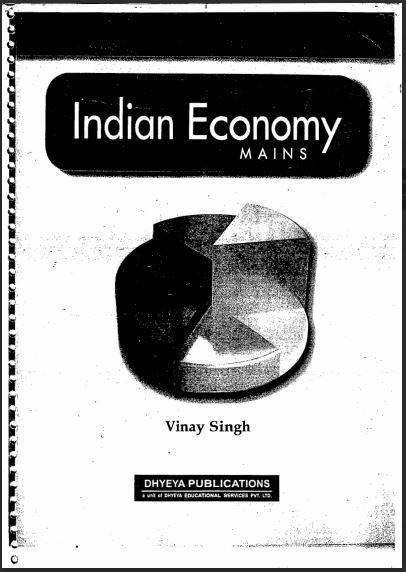Preparing for the Indian Administrative Services (IAS) Mains Exams can be a daunting task, especially when it comes to understanding the complexities of the Indian economy. A strong grasp of the economic landscape is essential for any aspiring IAS officer, as it forms a significant portion of the exam syllabus. In this blog post, we will provide you with valuable insights and resources to help you navigate the intricacies of the Indian economy.
Click Here To Download Button
Why is the Indian Economy Important for IAS Mains Exams?
The Indian economy is a crucial aspect of the IAS Mains Exams for several reasons. Firstly, as an IAS officer, you will be responsible for formulating and implementing policies that impact the economy at various levels. Secondly, understanding the economic challenges and opportunities in India is essential to address the country’s developmental needs effectively. Lastly, the Indian economy is intricately connected to global economic trends, and a comprehensive understanding of its dynamics is crucial for effective decision-making.
Key Concepts in the Indian Economy
Before diving into the details, it is important to familiarize yourself with some key concepts in the Indian economy:
- Gross Domestic Product (GDP): GDP is the monetary value of all goods and services produced within a country’s borders in a specific time period. It is a measure of economic growth.
- Monetary Policy: Monetary policy refers to the actions taken by the central bank of a country to control the money supply and interest rates to achieve economic stability.
- Fiscal Policy: Fiscal policy refers to the government’s use of taxation and spending to influence the economy.
- Inflation: Inflation is the rate at which the general level of prices for goods and services is rising and, consequently, the purchasing power of currency is falling.
- Unemployment: Unemployment refers to the number of people who are willing and able to work but are unable to find employment.
Recommended Resources for Studying the Indian Economy
1. NCERT Books: The National Council of Educational Research and Training (NCERT) publishes textbooks on various subjects, including economics. The NCERT textbooks provide a solid foundation and are highly recommended for IAS exam preparation.
2. Economic Survey: The Economic Survey is an annual document released by the Ministry of Finance. It provides a comprehensive analysis of the Indian economy, including key trends, challenges, and policy recommendations.
3. Budget Documents: The Union Budget is presented by the Finance Minister every year and outlines the government’s revenue and expenditure plans. Studying the budget documents will help you understand the government’s economic priorities and policies.
4. Newspapers and Magazines: Reading reputable newspapers and magazines such as The Hindu, The Indian Express, and Business Standard will keep you updated on current economic affairs and provide valuable insights into the Indian economy.
5. Online Courses and Webinars: Several online platforms offer courses and webinars specifically designed for IAS exam preparation. These courses provide in-depth knowledge and help you stay updated with the latest developments in the field of economics.
Approach to Studying the Indian Economy
While studying the Indian economy for the IAS Mains Exams, it is essential to adopt a holistic approach. Here are a few tips to help you:
- Understand the basic concepts: Start by building a strong foundation of the key concepts mentioned earlier. Ensure that you have a clear understanding of each concept and its interrelationships.
- Analyze real-world examples: To grasp the practical application of economic concepts, analyze real-world examples such as government policies, economic reforms, and global economic events.
- Stay updated: The Indian economy is dynamic and subject to constant changes. Stay updated with the latest economic developments through newspapers, magazines, and online resources.
- Practice answer writing: Answer writing is a crucial skill for the IAS Mains Exams. Practice writing concise and well-structured answers to economic-related questions to enhance your exam preparation.
Conclusion
Understanding the Indian economy is a vital component of IAS exam preparation. By familiarizing yourself with the key concepts, utilizing recommended resources, and adopting a comprehensive approach, you can enhance your knowledge and excel in the IAS Mains Exams. Remember, the Indian economy is a dynamic field, and continuous learning and staying updated are essential for success.
